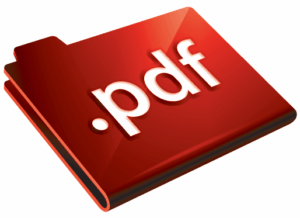The new Immigration Regulation, approved by Royal Decree 1155/2024 and in force since 20 May 2025, represents the most ambitious reform since 2011. Its aim is to modernise the Spanish migration system, aligning it with European directives and adapting it to current social, labour and demographic needs. Among other aspects, introduces significant changes on immigration, including simplification of procedures, support for integration, improved family reunification and protection of vulnerable groups..
Main novelties
1. Simplification of procedures and legal certainty:
Administrative procedures are reorganised to reduce bureaucracy and speed up residence and work processes. A specific title is created for visas, establishing a maximum validity of one year for all visas. In addition, it is possible to obtain long-term residence without having to leave the country.
2. Restatement of roots:
Five types of arraigo are introduced: social, socio-occupational, socio-training, family and the new "second chance arraigo", aimed at people who have lost their residence permit and wish to regularise their situation again. The minimum period of residence required to qualify for arraigo is reduced from three to two years, except in the case of family arraigo, which does not require a minimum period.
3. Improvement of family reunification:
The cases for family reunification are extended, allowing, for example, the reunification of children up to the age of 26 and eliminating the requirement of being married or being a common-law partner for the spouse. Special cases are also contemplated, such as family members of victims of gender-based violence, sexual violence and trafficking.
4. Facilities for foreign students:
Students will be able to work up to 30 hours per week and study up to 50% of their studies online. A "fast-track" is established to facilitate the transition from the authorisation of stay for study purposes to residence and work as an employee for those who have obtained their degree.
5. Institutional strengthening and training:
The Government has carried out an intense training and reinforcement campaign in the immigration offices to guarantee the correct implementation of the new regulation. Both face-to-face and online training actions have been carried out in all the autonomous communities.
6. Economic and social perspective:
It is estimated that this reform could regularise 300,000 people per year for the next three years, thus contributing to meeting the needs of the labour market and sustaining the welfare state.
Final considerations
While the new regulation introduces significant improvements in migration management, some social organisations have pointed out that there are still challenges ahead, especially in relation to the protection of vulnerable groups such as asylum seekers with rejected claims.
Key Highlights of the New Immigration Regulation (Royal Decree 1155/2024)
Simplification of Administrative Procedures
The regulation aims to streamline administrative processes, reducing paperwork and processing times for residence and work permits.
2. Enhanced Legal Certainty
It provides clearer guidelines on the rights of migrant workers, aligning with European Union directives.
3. New and Revised Residency Permits
Social Integration Permit: Residency requirement reduced from three to two years.
Training-Based PermitAllows immediate employment while undergoing vocational training.
Second Chance PermitFacilitates regularization for individuals who lost their residency status within the last two years.
Family Reunification: Expanded to include unregistered partners meeting specific criteria.
4. Extended Work Rights for Students
International students can now work up to 30 hours per week, regardless of their field of study.
5. Strengthened Protections for Vulnerable Groups
Introduces special residency and work authorizations for victims of sexual violence and other vulnerable populations.
6. Alignment with EU Migration Policies
The regulation incorporates EU directives, such as Directive 2024/1233, establishing a single application procedure for third-country nationals to reside and work in an EU member state.
Points Clés du Nouveau Règlement sur l'Immigration (Décret Royal 1155/2024)
1. Simplification of Administrative Procedures
The regulation aims to simplify administrative procedures by reducing paperwork and processing times for residence and work permits.
2. Sécurité Juridique Renforcée
It provides clearer directives on the rights of migrant workers, in line with EU directives.
3. New Stay and Visit Permits
Social Integration Permits: Residence requirement reduced from three to two years.
Permission based on trainingAuthorise immediate employment during vocational training.
Second Chance PermitsFacilitate regularisation for persons who have lost their residence status in the last two years.
Regroupement Familial: Extended to include non-registered partners meeting specific criteria.
International students can now work up to 30 hours per week, whatever their field of study.
5. Strengthening the Protection of Vulnerable Groups
Introduction of special residence and work permits for victims of sexual violence and other vulnerable populations.
6. Aligning EU Migration Policies
The regulation incorporates EU directives, such as Directive 2024/1233, establishing a single application procedure for third-country nationals wishing to reside and work in an EU Member State.
Sources: observatoriorh.com | barclier.com | cuatrecasas.com | poruntrabajodignougt.org | iberley.es

